In Uganda, the world’s longest school closure has left deep scars
«I pray to God to give you the financial means to send your children to school this morning.» The pastor’s chant booms from dozens of speakers in Luweero. The main road in this small town 70 kilometers (about 45 miles) north of Kampala is busy on this Monday morning in early January. Countless motorcycles are loaded with colorful suitcases and mattresses belonging to boarding school students. Children and young people in school uniforms can be seen everywhere, and long lines are forming in front of the schools.
After nearly two years, it is finally over: the longest coronavirus-related school closure in the world. The government imposed the measure in March 2020 in order to reduce the risk that schoolchildren would transmit the virus to their parents. For their part, opposition party members argued that the long closure was also politically motivated. They contended that the government was trying to seal off the country in the run-up to the January 2021 elections and during the tense months that followed.
Regardless of the reason, one thing is clear: The school closures will exact a lasting toll. Already, they have badly undermined some of the education-sector achievements that this East African country has made over the course of recent decades.
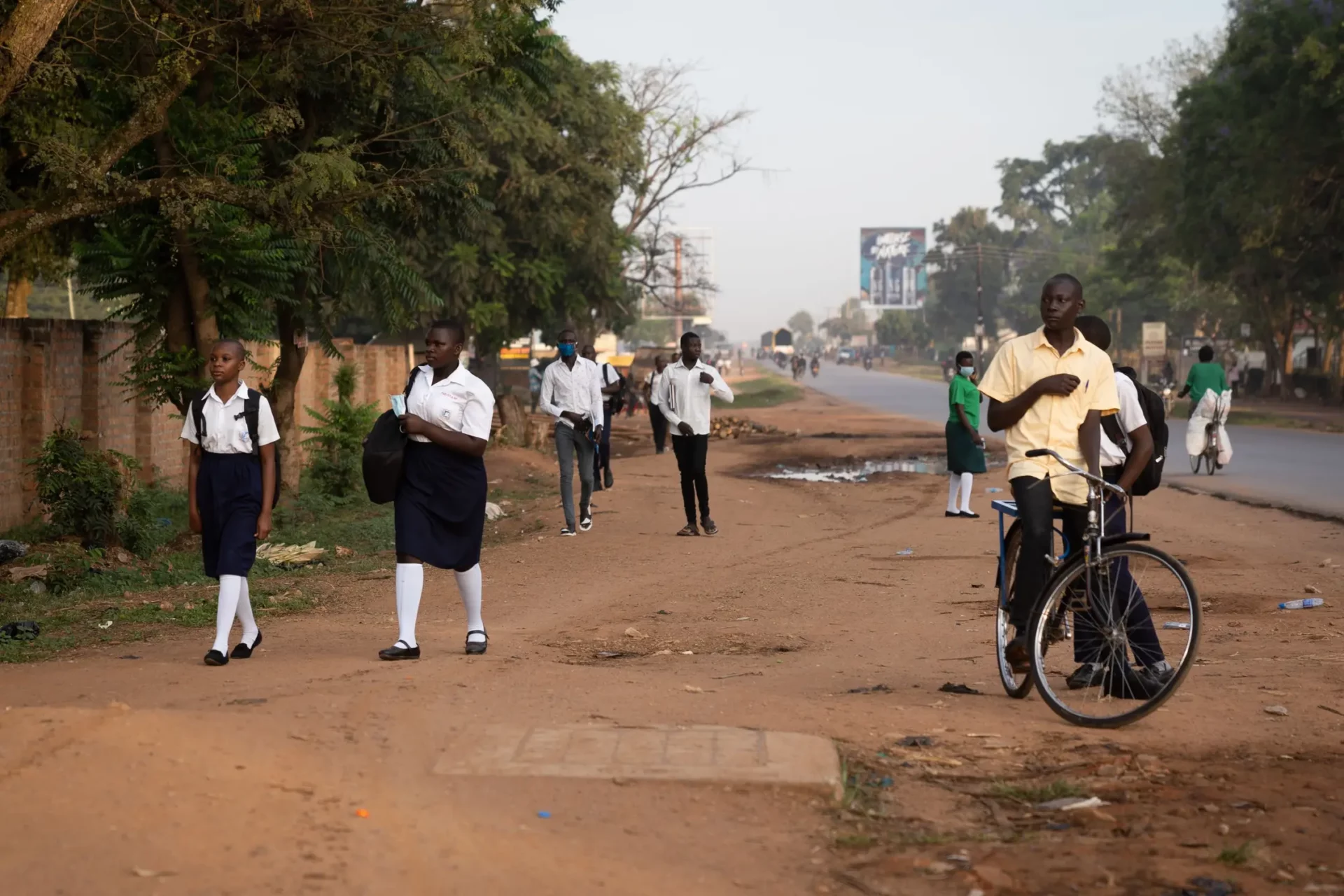
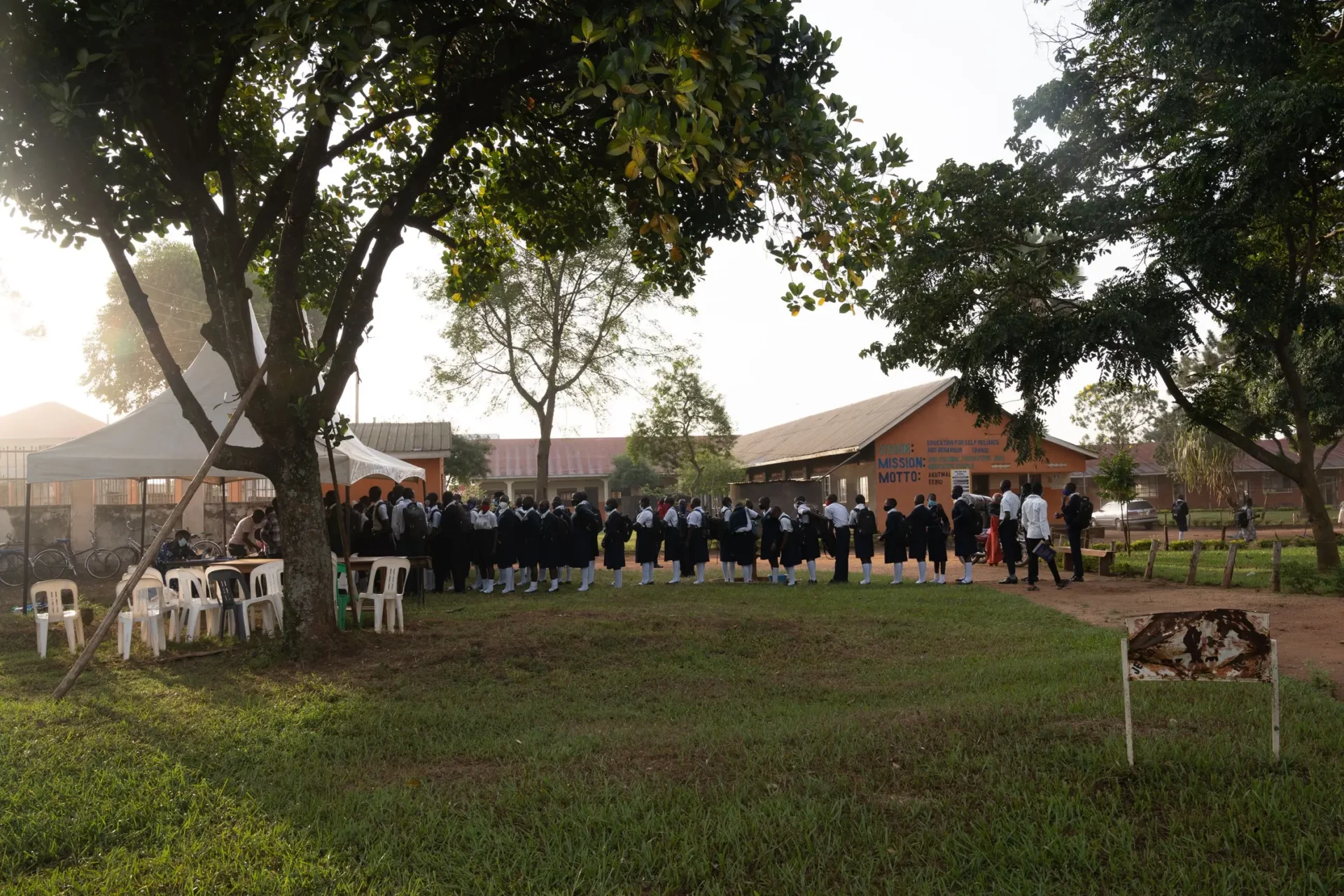
«I’m never going back»
March 2020 was the last time that teacher Justine Nabukeera heard from the private school where she had taught English for seven years. On the day that all schools in Uganda were shut down due to the pandemic, the principal sent her a message: «No pay until the school opens.»
For Nabukeera and her two children, that single sentence meant they were losing most of their income, she says. «I was in a panic,» the 32-year-old recalls. She knew her savings would last for barely four weeks. «I had no choice but to find another job immediately.»
Initially, she and her two girls worked in their neighbor’s coffee-bean fields. Then the father of a former student helped her get a loan. With the money, she opened a small store where she now sells beer, milk, roasted peanuts and fruit, among other items. «First I had to learn what prices I could charge,» Nabukeera says. With a laugh, a customer in front of the store adds that the former teacher had unfortunately learned that particular lesson very quickly.
Her career change has proved successful. Although she misses teaching, Nabukeera says she is certain of one thing: «I’m never going back to the teaching profession.» As a teacher, she says, she rarely received her pay in full and on time. Now she earns around $70 more per month than before.
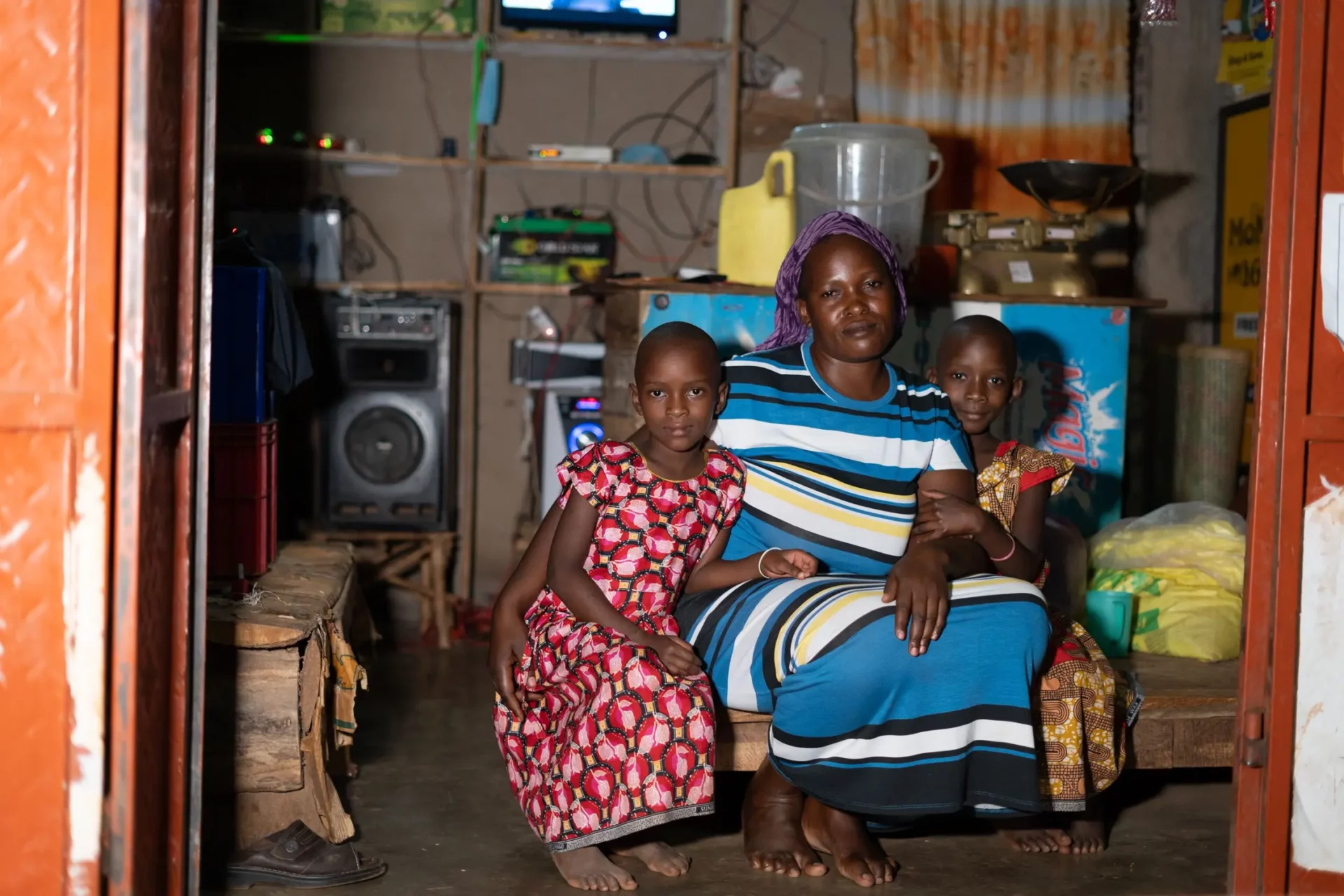
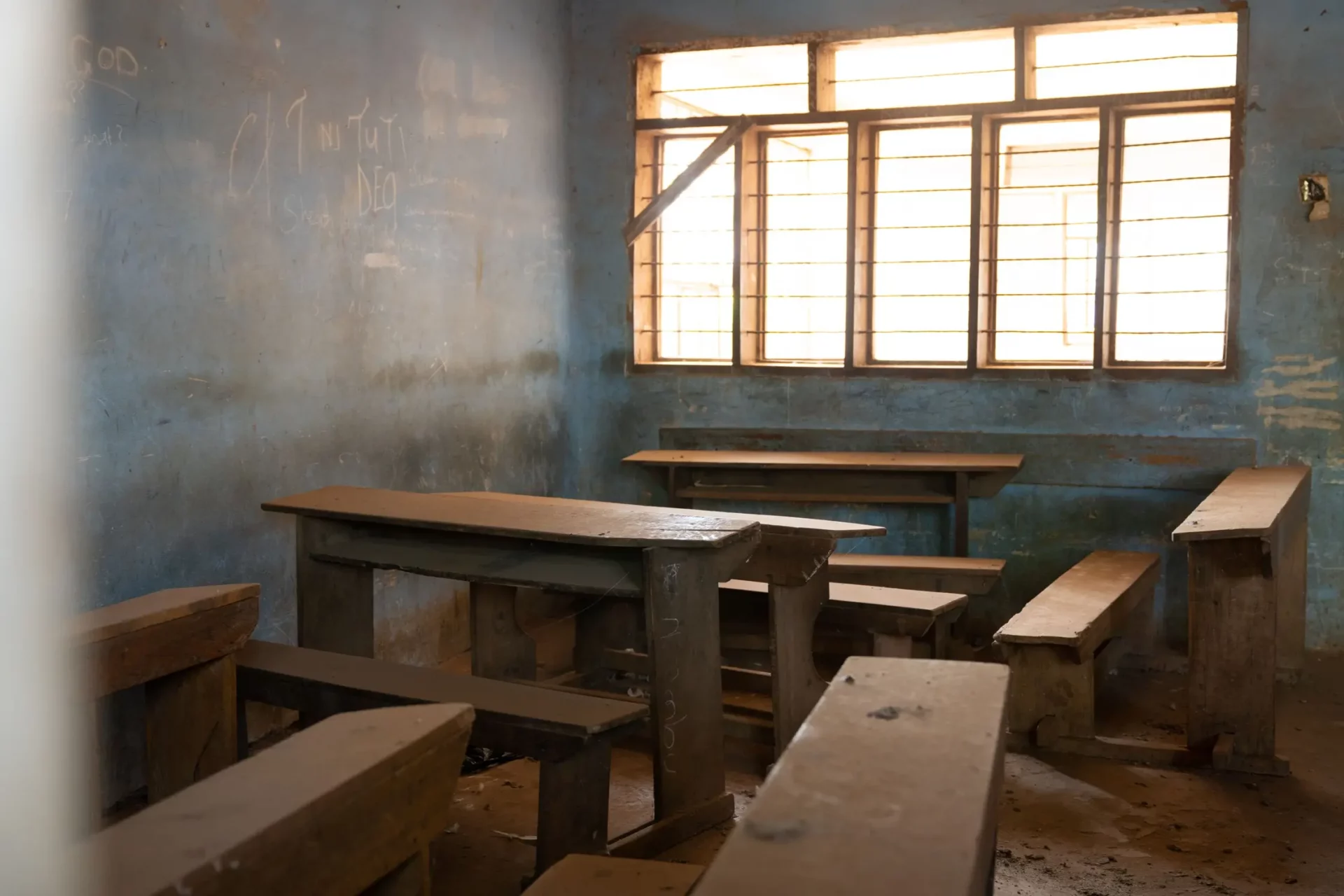
Around 40% of Uganda’s primary schools and 60% of its secondary schools are private institutions run by individuals, religious communities or charitable organizations. School fees represent their main source of income. These are used to cover ongoing costs, including wages. An average teacher’s salary runs between $100 and $250 per month.
When the income from fees dried up as a result of the school closures, administrators in many private schools were forced to cut teacher salaries or eliminate them altogether. Meanwhile, in state-run schools, the government continued to pay teaching staffers’ salaries.
Like Nabukeera, many Ugandan teachers have had to find new sources of income, for example as farmers, brickmakers or cab drivers. This now threatens the future of private schools: Some don’t have enough teachers, while others have shut down altogether or were used for other purposes during the lockdown. According to the National Planning Authority, a total of 3,507 primary schools and 832 secondary schools around the country have not reopened. Forty of these are in the district of Luweero.
The Gift Nursery and Primary School, where 11 teachers taught 300 students before the pandemic, is one of them. Its owner, Ronald Luyinda, decided after nine months of lockdown to convert the empty school premises into a guest house. «The school business just wasn’t profitable anymore,» Luyinda says of the former school, which is now a construction site.
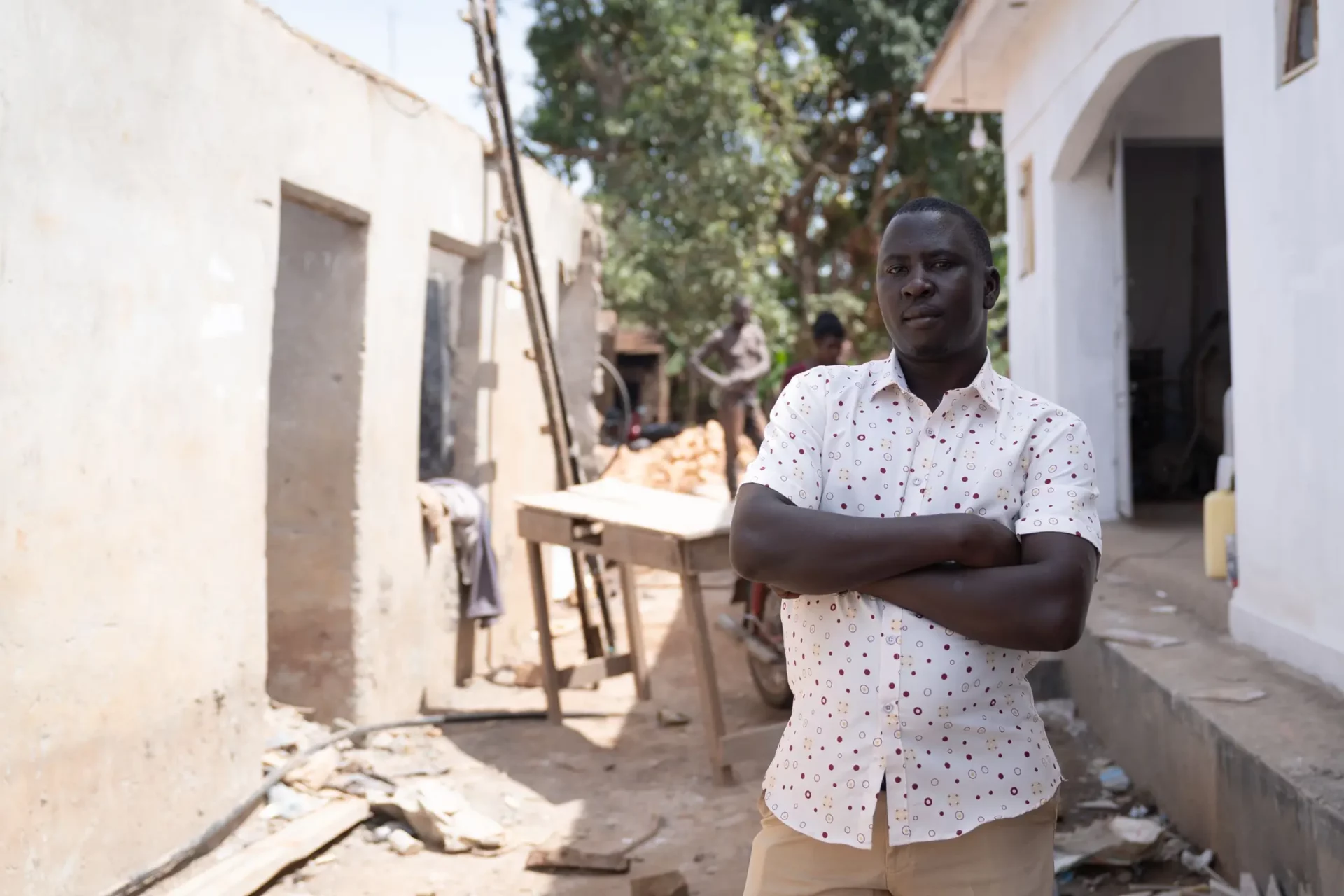
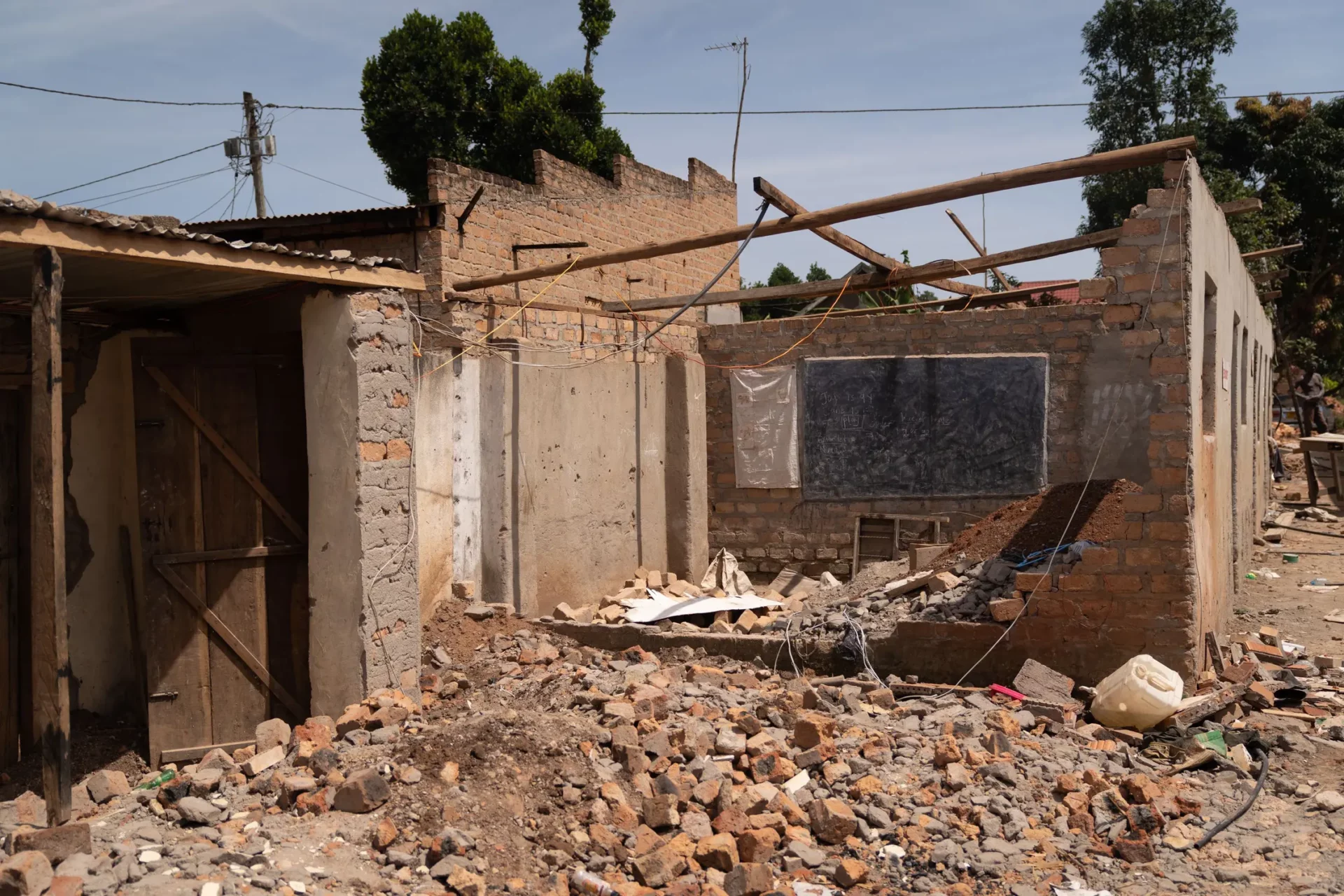
Only a blackboard and a few dusty schoolbooks remain, recalling the building’s former purpose. Luyinda says the government repeatedly promised to provide him with financial support. But he received nothing, he adds. «I didn’t want to go farther into debt,» he says. He calculates that each guest room will earn him at least $15 a night – much more in total than the roughly $290 he used to make per month as the school’s owner. Of course he feels sorry for his former students and their parents, Luyinda says. «But at the end of the day, I’m a businessman.»
Abandoned dreams
The further you go from the center of Luweero, the more the houses give way to shady coffee bushes and banana trees. Sitting on a concrete staircase, 19-year-old Cissy Nakandi watches her mother lay out chili peppers to dry. Nakandi is not among the children and young people streaming through the reopened school gates this morning.
She has abandoned her dream of studying marketing at a university, she says. When her college closed, she had to help out by working in the fields belonging to her mother and their neighbors. This was boring work, she remembers. Her relationship with a former classmate added a little excitement to the daily routine, Nakandi says quietly. But the liaison had lasting consequences: After she began vomiting repeatedly, her mother sent her to the doctor. The pregnancy test she took there turned out to be positive.
«My parents were incredibly angry with me,» the petite young woman says without lifting her eyes. During the pregnancy, she found herself in tears over and over, she says – because she felt abandoned, because the child’s father did not want to stay with her, because she was now stuck at home.
Now, with her three-month-old infant Andrew, Nakandi rarely ventures out into the streets. Neighbors would look down on her, she says. «I feel ashamed,» she admits. But she says she is also angry at little Andrew’s father, who is able to continue on with college now that schools have opened. «For him, life is going on as if nothing has happened.»
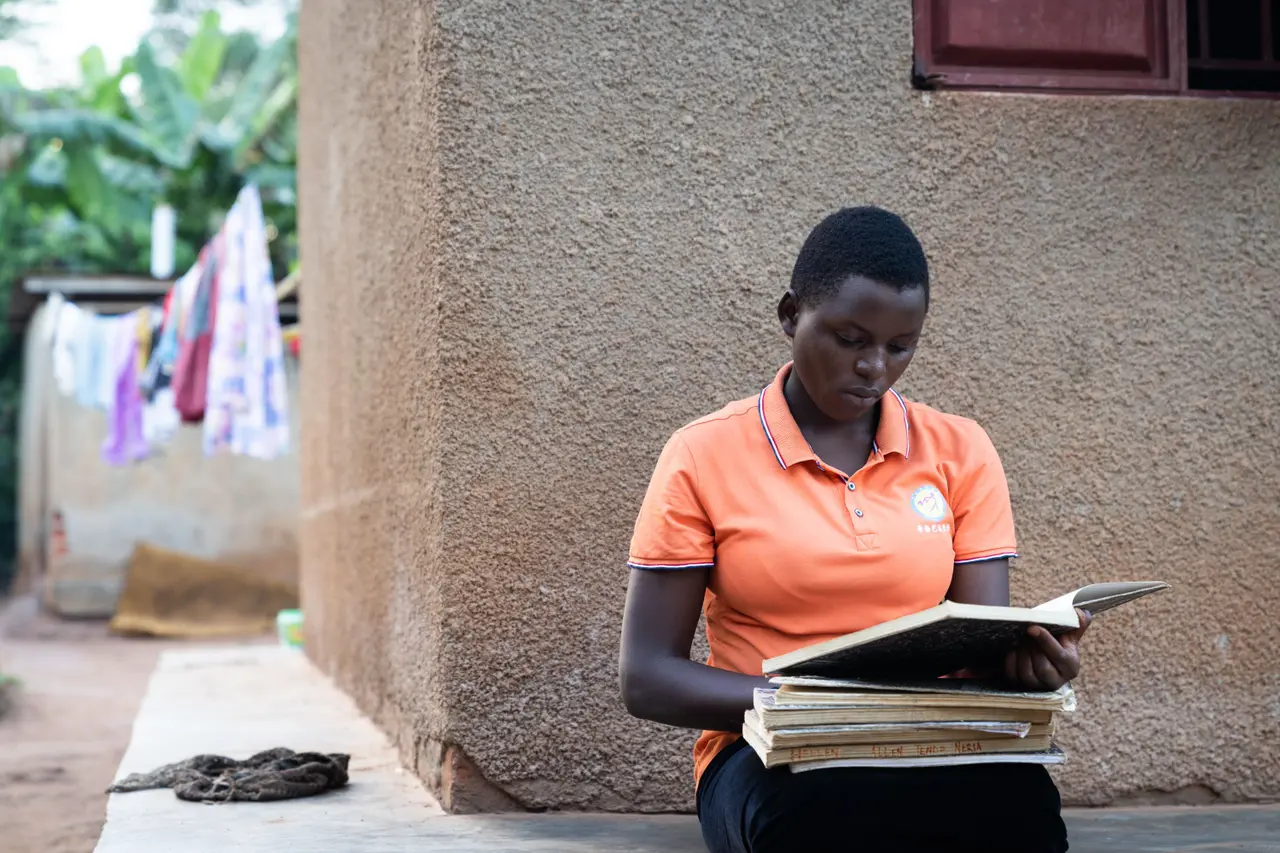


Sisters Helleni Nassozi (top) and Cissy Nakandi (below left) became pregnant during Uganda’s long school lockdown. For their mother Harriet Nateebwa (below right), this has been a big blow. The family’s money is now needed for the grandchildren rather than for school fees.
Harriet Nateebwa, Nakandi’s mother, briefly takes little Andrew from her daughter. At the beginning of the school closures, she says, she tried everything to make sure her 10 school-age children studied their class materials every evening, and quizzed each other on the contents. But after just a few days, she was no longer able to motivate them to do so, the 45-year-old says. While wealthy Ugandans could afford private tutors, their main concern had simply been to feed their family. «We weren’t allowed to sell our coffee in the market during the first few months of the lockdown,» she says.
«My children were safe in school – even from pregnancies,» Nateebwa says. But now she will soon become a grandmother for the second time. Her second-oldest daughter, 17-year-old Helleni, is also pregnant. «We wouldn’t be in this situation if the schools had remained open,» Nateebwa adds. In total, four of her 10 children will not be returning to school. The money for their school fees is now needed for her grandchildren, she says. In Uganda, only primary education is free and compulsory; secondary education is voluntary, and subject to fees.
Ugandan authorities expect that one-third of the children who attended school before the pandemic will not return to the classroom. This is a serious setback for the country, which has one of the youngest populations in the world, and is already struggling with high levels of youth unemployment and poverty.
Mary Goretti Nakabugo is executive director of Uwezo Uganda, a Uganda-based organization that conducts education research. «The damage is massive,» she told a Ugandan publication. «If we don’t make intensive efforts now to help these students catch up, we may have lost a generation.»
Work instead of cramming
In fact, on this Monday afternoon, only the front rows of benches are occupied in many classrooms in Luweero. This is true at the Muslim Secondary School too. However, the head of the school, Osuman Lubega, is confident that more students will be arriving by the end of the week. «I’ve been getting calls all morning from parents who think they’ll be able to get their tuition together soon,» he says.
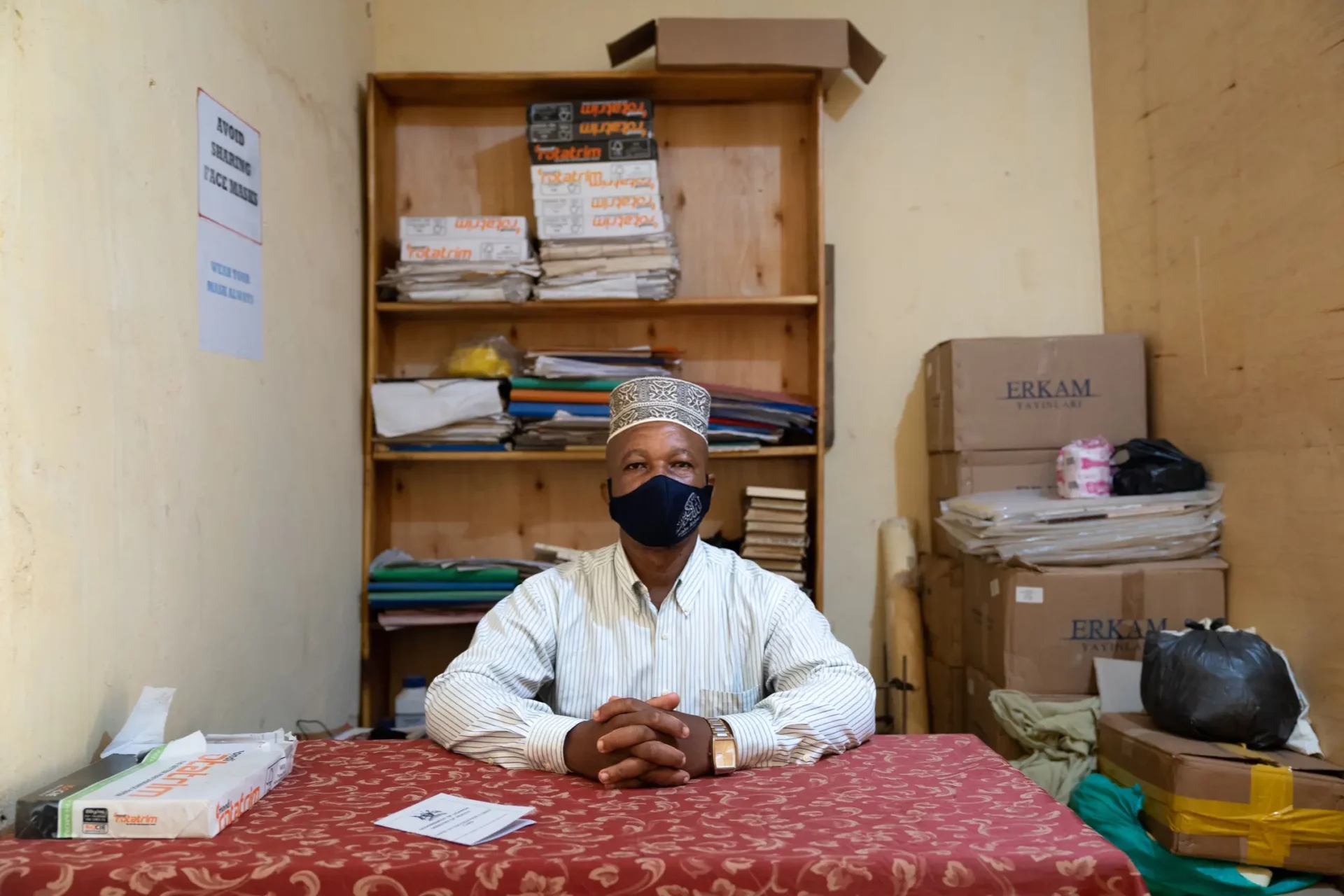
For his part, Everest Secondary School head Ronald Ndawula says he hardly recognizes those who have returned. «A lot of them are addicted to money,» he says. Many don’t understand why they still ought to go to school when they can already earn their own wages as motorcycle drivers or farmers, he adds.
He tells of a student who just that morning had stood shouting outside the school building until his father took him back home. «The student wanted to get back to his job at the construction site,» Ndawula says. He adds that he has now asked all parents to place their children in the secondary institution’s boarding school, at least if financially possible. «We now have to give them intensive support, so that they can find their way back into some kind of school mindset,» the school’s head administrator says.
The Ugandan government too is now pushing to get as many students back into schools as possible. According to the education minister, the state has even called on village elders and church leaders to encourage families to reenroll their children. Initially, the plan was to require students to take coronavirus tests in order to return. This measure was canceled shortly before the schools reopened. However, President Yoweri Museveni warned in his New Year’s address that some of the steps toward reopening could be reversed if the country’s health system were to become overburdened again.
Eighteen-year-old Henry Tumusiime says he hopes it never comes to that again. During the lockdown, he helped his father on the family farm, selling rabbits and chickens for him at the market. He was able to earn up to $3 per day, he says. «But no amount of money in the world can replace school,» Tumusiime says. He adds that it is great to be back. «I even missed the snoring in the boarding school’s dormitory.»
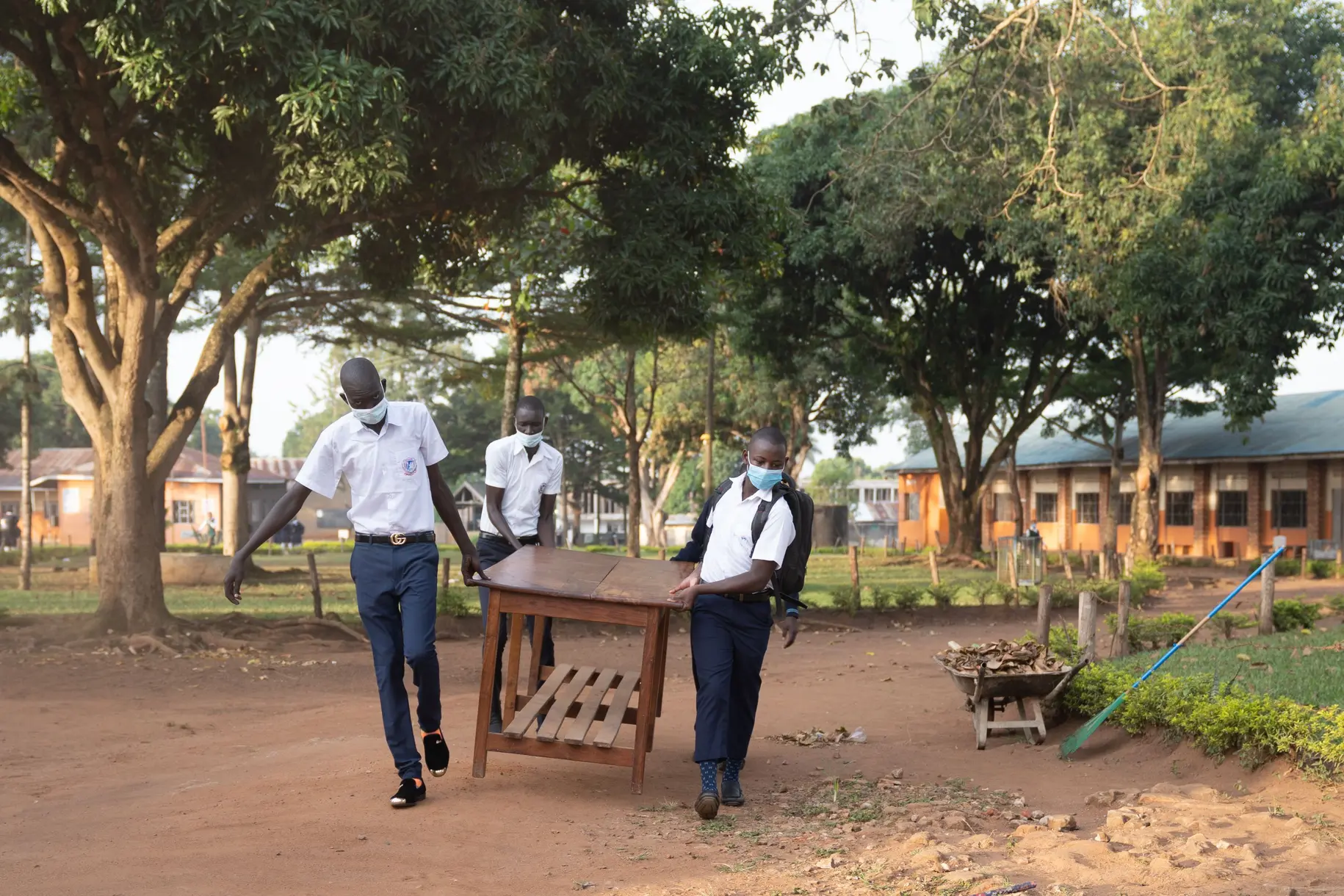
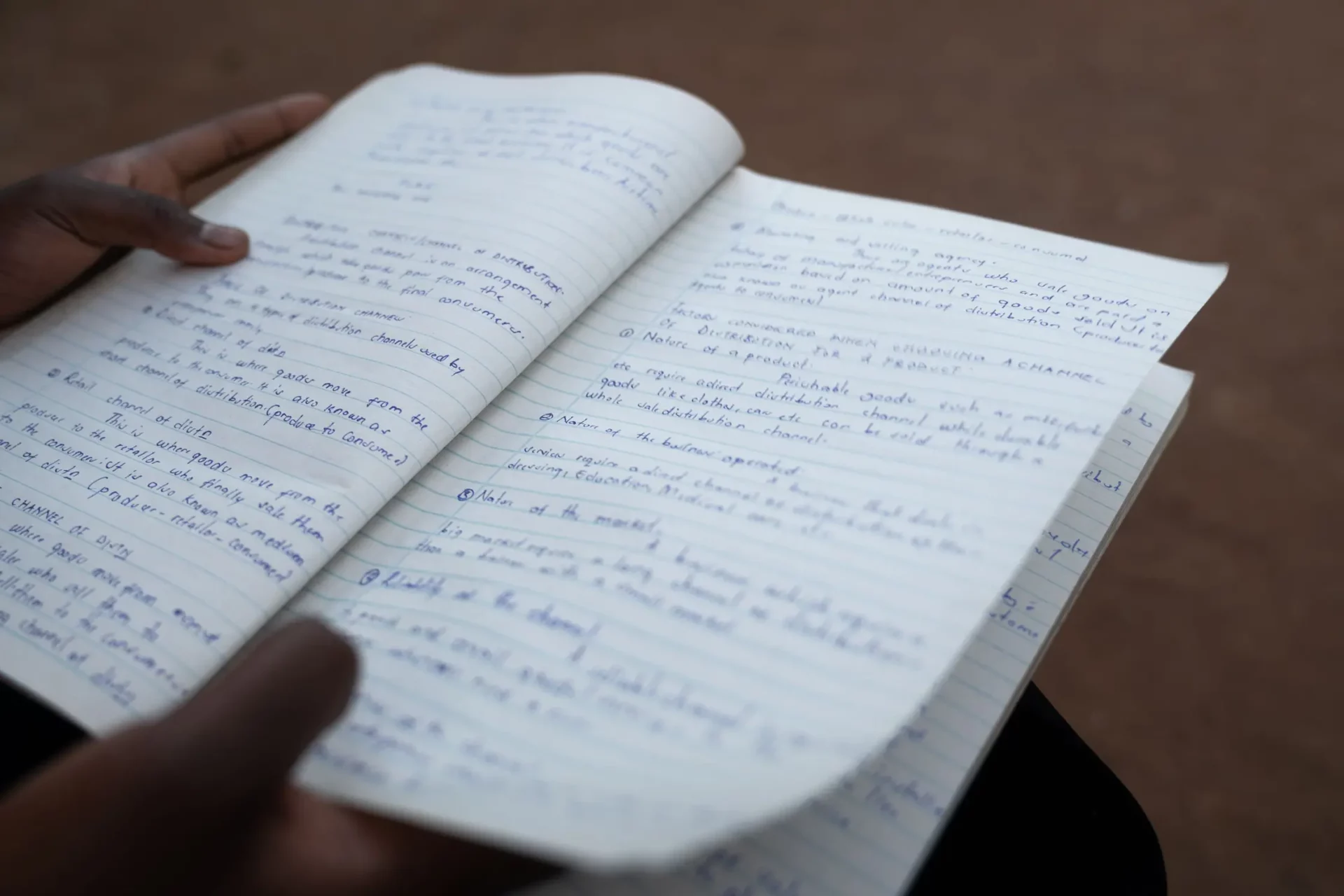
A version of this article appeared online on January 27, 2022, on the NZZ English website.


